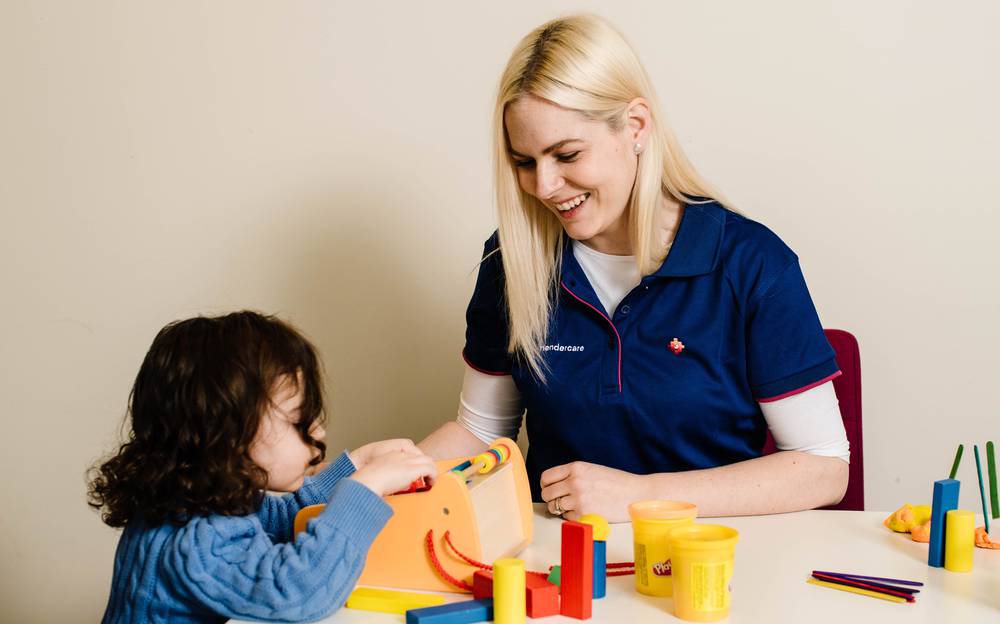In recent years, a focus on early intervention programs for children with disabilities has seen the therapeutic approach of play therapy grow in popularity.
But what is play therapy and how can it help children with a disability make sense of their worlds?
Our friends at Source Kids recently published a great article by senior play therapist Thomasina Williams which talks about the difference between play therapy and regular play. It also explores the potential benefits of including play therapy as part of an early intervention strategy.
We thought it was too good to miss so we have shared an extract from it below.
Using play to uncover capabilities.
Play is an entrenched part of childhood and is vital for healthy brain development in children.
More than just ‘child’s play’, play therapy provides children living with a disability a chance to:
- Uncover their capabilities relating to their disability
- Strengthen their social relationships
- Better express, process and master their emotions.
What does a play therapist do?
Play therapy allows a child to ‘play out’ their inner thoughts or real-life experiences. As a child’s linguistic development lags behind their cognitive development, children make sense of their worlds through play and use it to communicate.
Play therapists are specially trained in this language. They use play to assist children to express and explore their feelings, needs and behaviours while supporting them to achieve optimal growth and development.
Play therapy and regular play.
The difference between play therapy and regular play stems from a therapist’s ability to assess, understand and interpret the play.
In play therapy, the child’s language is play and the toys are their words. A good play therapist will be able to understand and communicate through play. This can lead to social, emotional, behavioural and psychological developments for the child.
The potential benefits of play therapy.
Many studies support the use of play therapy for children with disabilities.
Some potential outcomes include:
- Enhancing and developing relationships, play skills and self-esteem
- Improving social skills and self-regulation
- Assisting with processing and expressing emotion, cultivating empathy towards others and reducing anxiety
- Aiding the development of new and creative solutions to problems.
Involving parents and caregivers.
Where appropriate, the therapist may involve the parent/caregiver in the therapy and provide them with the tools to replicate aspects of the therapy at home. This inclusive approach can further support a child with a disability to overcome some of the everyday challenges they face.
Choosing a play therapist.
Currently, there is no minimum qualification to practice as a play therapist, and as a result, some play therapy providers have completed little or no training.
When selecting a therapist, ensure that they have postgraduate training in play therapy or current registration with a relevant industry body like APPTA (Australasia Pacific Play Therapy Association) or APTA (Australian Play Therapists Association).
The key to the success of play therapy as an early intervention lies in selecting a provider who will work with your child and family to recommend and implement the right play modality/modalities to help your child reach their goals.
With evidence to support the success of play therapy for children with a disability, it is no surprise that this therapeutic approach, which does not require a referral from a GP or specialist, is gaining popularity
How plan management can help.
The Leap in! Provider Network Directory contains hundreds of NDIS service providers, including play therapists. Filter by location and service type – Play Therapy – to find therapists in your area.
Working with a plan manager like Leap in! can help you get the most from your NDIS budgets. With Leap in! you’ll be supported through every step of the NDIS Plan cycle with free advice from experienced plan managers.
Call us on 1300 05 78 78, book your free NDIS pre-planning session or sign up to Leap in! plan management today.
Further reading
Powerful stories that really make us think differently.
Simple (and cheap) at home therapy hacks: Special Source Kids edition.

